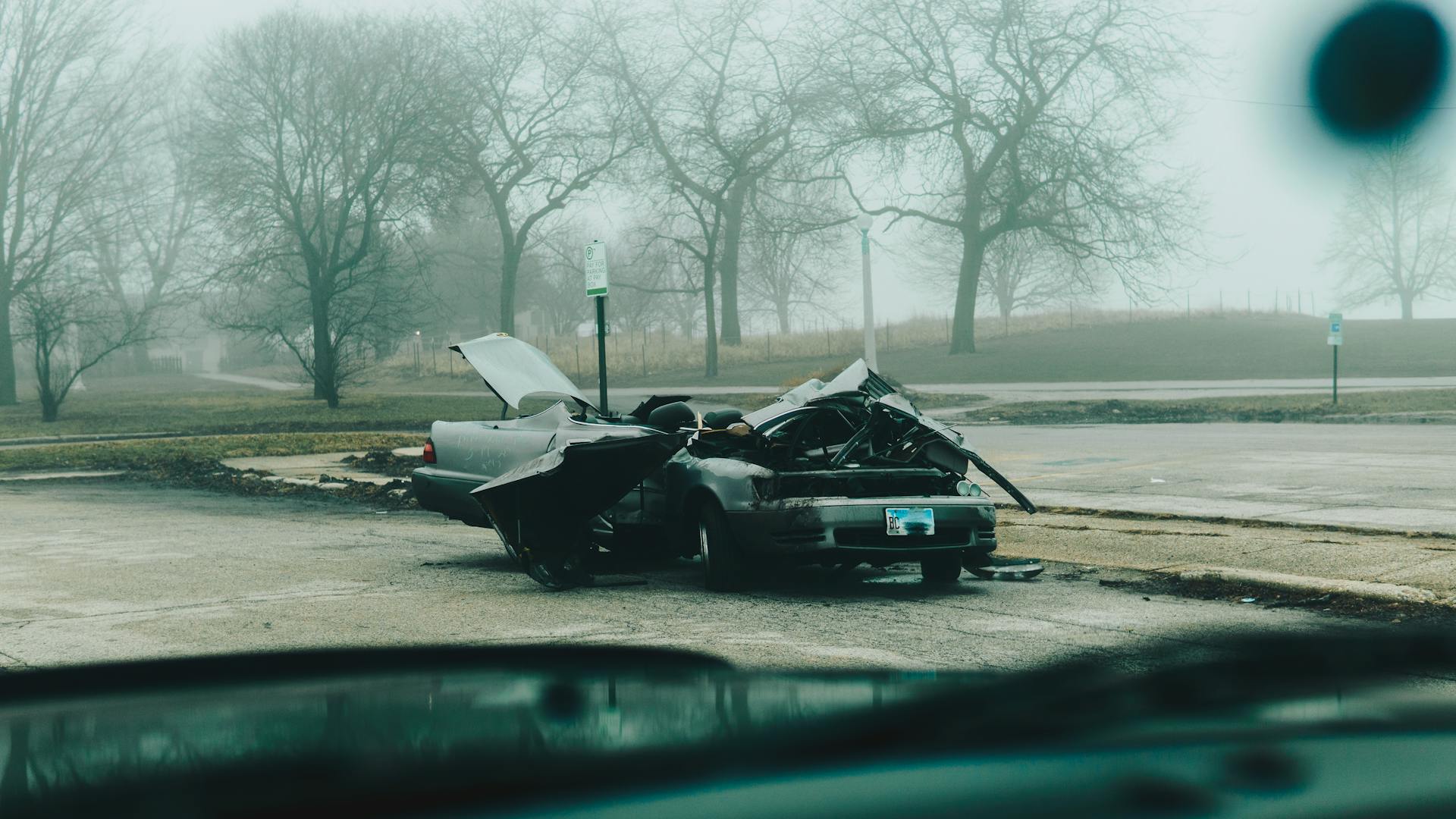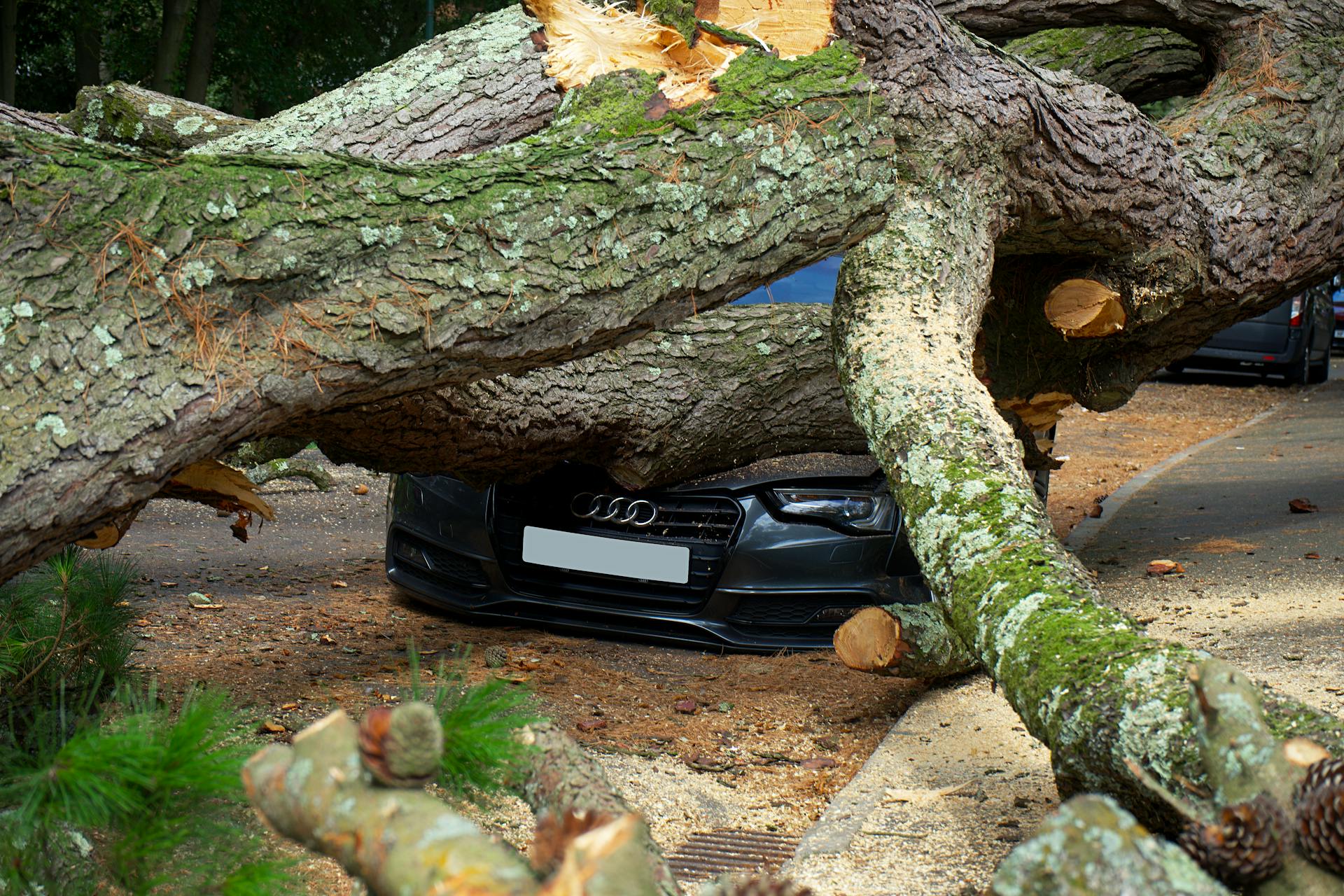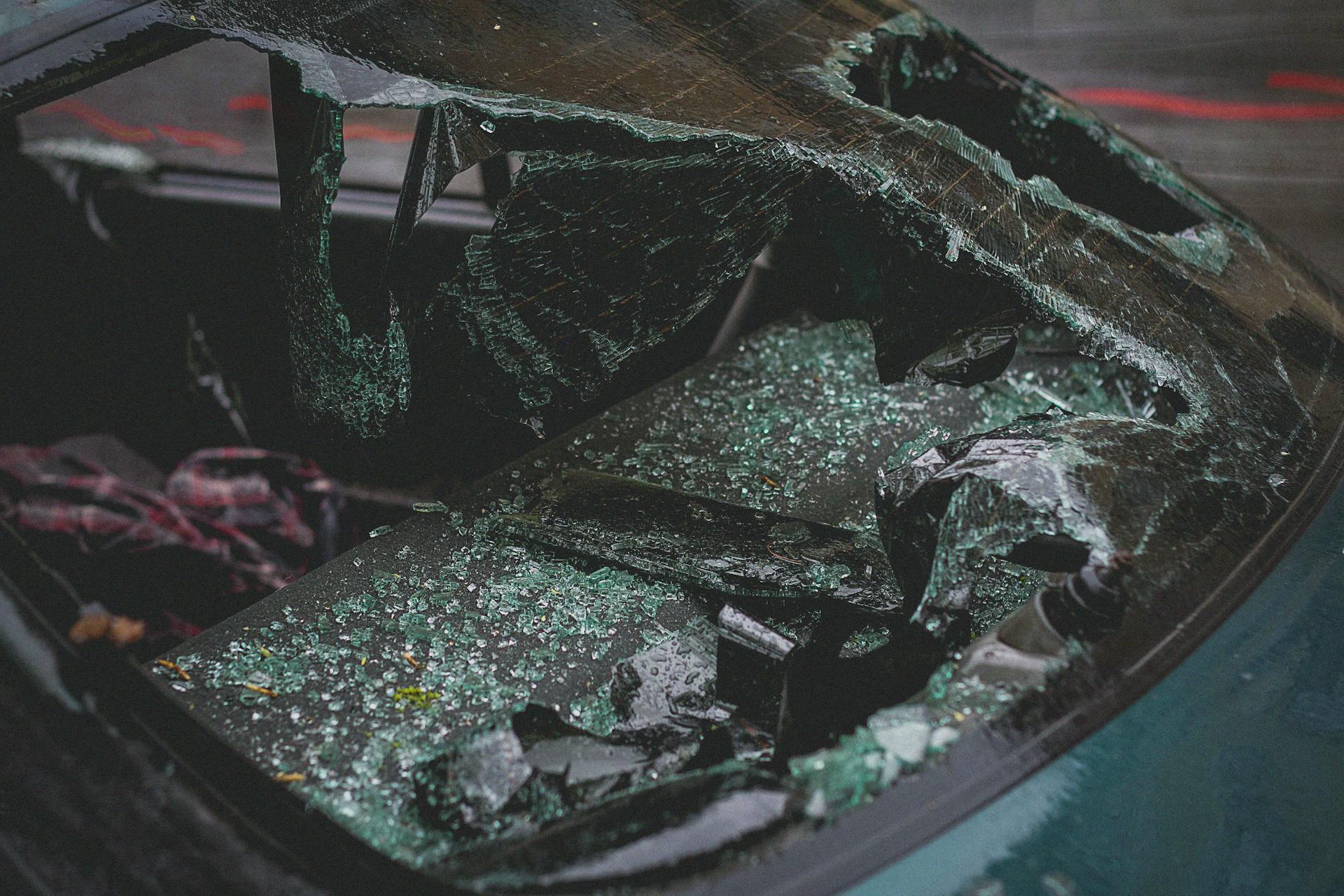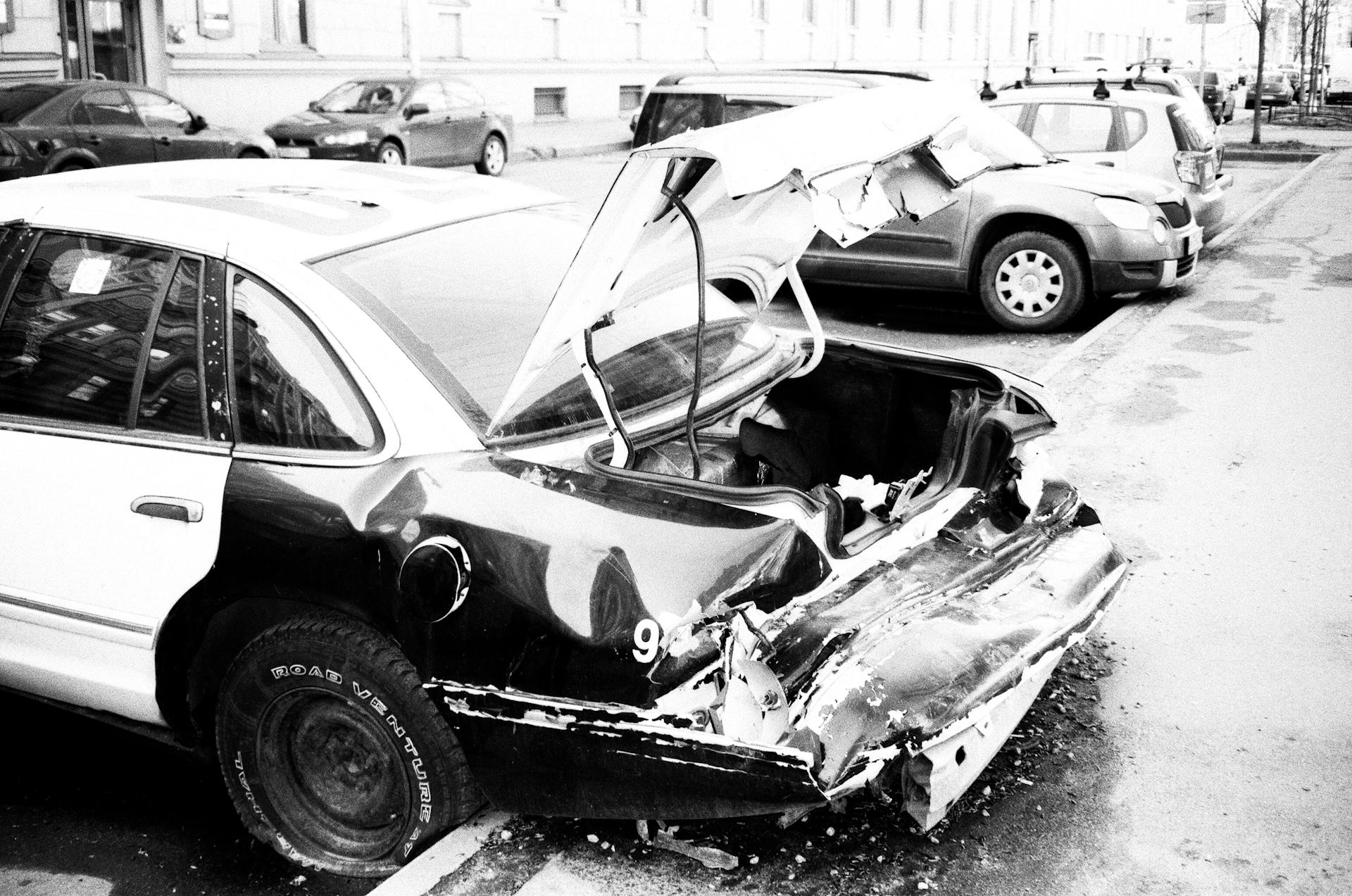
If you're planning to drive someone else's car, you might wonder if your car insurance will cover you. Most states require drivers to have liability insurance, which covers damages to others in an accident.
Your personal auto insurance policy may not cover you while driving someone else's car, unless you have a specific endorsement or add-on. This is because your policy is tied to your vehicle, not you as a driver.
Driving someone else's car can be a bit tricky, but understanding your insurance coverage can help you avoid unexpected expenses. For example, if you're driving a friend's car and get into an accident, you'll want to know if your friend's insurance or your own policy will kick in.
In some cases, your personal auto insurance policy may cover you while driving a non-owned vehicle, such as a rental car. This is often the case if you have a comprehensive or collision coverage endorsement.
If this caught your attention, see: Does Car Insurance Cover Break Ins
Insurance Basics

Your car insurance policy will usually pay out first in the event of an accident, but it's not the only policy that applies. This is because car insurance follows both the car and the driver.
Most types of coverage, including liability, comprehensive/collision, and personal injury protection (PIP), or medical payments (MedPay), will apply to anyone driving your vehicle.
If someone else crashes your car, your policy tied to the car will usually pay out first, followed by the driver's policy tied to them, and then a policy belonging to the driver's resident relative.
Here's a rough idea of how it works:
- Your policy, tied to the car, will pay out first.
- The driver's policy, tied to them, will pay out next.
- A policy belonging to the driver's resident relative will pay out last.
One exception is PIP/medical payments coverage, which may pay out first in some states, depending on the driver's own PIP (or health insurance) coverage.
Liability Coverage
Liability coverage protects you in case you cause injuries or damage to others or their property. It's mandatory in some states, like Washington, where you're required to carry at least $10,000 of property damage liability coverage.
On a similar theme: Does Car Insurance Cover Accidents on Private Property

Bodily injury liability coverage, which is also mandatory in some states, covers injuries you cause to others, including those you're driving for.
In Texas, liability coverage follows the driver, not the vehicle, which means your own personal auto policy extends liability, medical payments, and uninsured/underinsured motorist coverage to you when driving someone else's car.
However, there are some caveats: you must have the owner's permission to drive the vehicle, and the owner's policy does not extend coverage to you if you cause an accident.
Here are some common types of liability coverage to be aware of:
Special Coverage
Special Coverage is a crucial aspect of Texas auto insurance policies. It's essential to understand what situations are covered so you can drive with confidence.
There are a few common situations where Texas drivers can expect their auto policy to provide coverage when using someone else's car. These situations include common usage, such as borrowing a friend's car to go to the store or running errands.
Suggestion: What Does Gap Insurance Cover in Texas

You can also expect coverage if you're driving a rental car under certain circumstances. This is especially important if you're renting a car for an extended period or using it for business purposes.
In Texas, your auto policy may also provide coverage if you're driving a car that belongs to your spouse or domestic partner. This is a common scenario, especially if you both have cars and switch between them regularly.
If you're unsure about what situations are covered under your policy, it's always best to review your policy documents or consult with your insurance provider. They can provide you with specific information about your coverage and any limitations that may apply.
Get a Rental
If you need to rent a car, your personal auto policy will provide liability, medical payments, and uninsured motorist coverage. However, it's a good idea to purchase supplemental liability coverage from the rental company for optimal protection. This is because many insurers require it.

You'll also want to consider the rental company's loss damage waiver, which covers damage to the rental vehicle. If you don't purchase this waiver, you may be responsible for repairs if the rental gets damaged or stolen. Check with your insurer about rental car coverage.
Some credit cards include a perk that covers damage to rental cars, but these benefits are often secondary, meaning they pay out only once your own policy is exhausted. If you have a credit card with primary damage coverage, it will be first in line to pay for vehicle damage.
Here are some key things to keep in mind when renting a car:
Coverage Limitations
Your car insurance policy will generally extend to another person's car, but there are situations where coverage could be limited or excluded.
If you use a car owned by your employer for personal errands, a business use exclusion may apply. This means your coverage while driving their car may be limited or denied.
Readers also liked: Personal Auto Insurance for Business Use

If the car owner's policy has lapsed, your coverage while driving their car may be limited or denied.
Using a car without permission will not be covered by your insurer due to auto theft.
Mechanical breakdowns to a car you don't own are not covered by your auto policy.
Your insurer may cap physical damage coverage for non-owned cars at a lower limit.
Here are some common situations where coverage may be limited:
- Personal errands using an employer-owned car
- Driving a car with a lapsed policy
- Using a car without permission
- Mechanical breakdowns to a non-owned car
- Physical damage coverage cap for non-owned cars
Factors Affecting Coverage
Your car insurance coverage can be affected by several factors when driving a car you don't own.
Your policy limits are a key factor, as higher liability limits provide more coverage when driving other cars. This means if you have a higher policy limit, you'll be better protected in case of an accident.
Permission to use the vehicle is also crucial - coverage only applies if the owner gave you express consent to operate their car. Always make sure to get permission before driving someone else's car.
On a similar theme: If My Car Breaks down Will Insurance Cover a Rental

A clean driving record helps maintain coverage when using other cars. If you have a good driving record, you're more likely to be covered.
Comprehensive and collision coverage may not extend to a non-owned car, so be sure to check your policy specifics.
Your relationship to the policyholder can also affect coverage - some insurers limit coverage for non-relative drivers. If you're not a relative of the policyholder, you may not be covered.
The length of use is another factor - occasional borrowing is viewed differently than regularly driving a car you don't own. If you're only borrowing a car occasionally, you're more likely to be covered.
Expand your knowledge: What Does Auto Insurance Not Cover
Frequently Asked Questions
Does my insurance cover me if I wreck someone else's car?
Your insurance may cover you in case of an accident in a borrowed vehicle, but it depends on the type of coverage you have. Check your policy for details on liability, comprehensive, and collision coverage.
What happens if my friend borrowed my car and gets in an accident?
If your friend borrows your car and gets into an accident, your car insurance typically covers the claim, as it follows the vehicle, not the driver
Sources
- https://www.valuepenguin.com/does-my-car-insurance-cover-other-drivers
- https://www.insurance.wa.gov/whats-covered-under-auto-policy
- https://www.tdi.texas.gov/consumer/auto-insurance-faq.html
- https://www.goosehead.com/insurance-resources/does-my-insurance-cover-me-if-i-am-driving-someone/
- https://www.karnsandkarns.com/will-my-insurance-cover-me-if-i-drive-someone-elses-car-in-texas/
Featured Images: pexels.com


